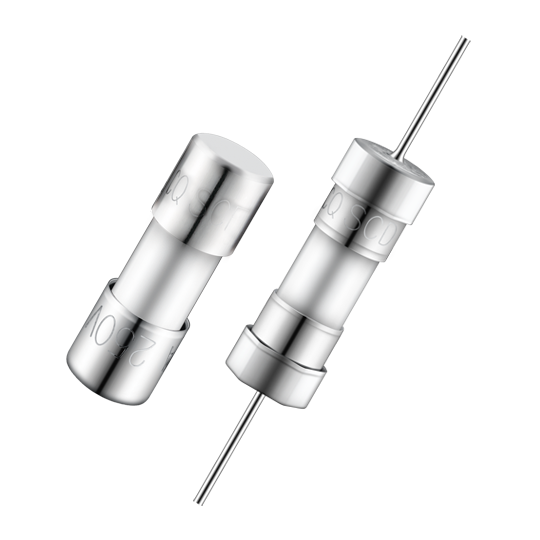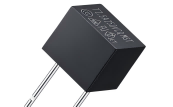Gongde hnstshop.com/product-list/F05-p1-l10.html" target="_blank">glass tubular fuse is widely used in the important components in the field of circuit protection, which have the advantages of reliable over-current protection, wide application range and high cost performance. Its models include SCF / SCD / SDL / SCF-A / SCD-A / SDL-A, etc., and the back with A letters is mainly whether there are leads at both ends, other parameters are basically the same, usually the specification 4.5X14.5MM, voltage is 125 / 250 / 350V, current 0.1A-8.0A, ambient temperature-55-125℃. The reactive SCF / SCD / SDL axial lead and tubular fuse are usually made of metal wire or metal sheet, with low resistance, and high melting point. When the overcurrent or short circuit appears in the circuit, the resistance of the fuse will increase rapidly, generating a large amount of heat, so that the fuse will fuse, thus cutting off the circuit, protecting the electrical equipment in the circuit from the overcurrent damage.

Glass fuse has many advantages, such as small size, simple structure, low cost, easy installation. They are suitable for a variety of different industries and fields, such as consumer electronics, communications equipment, household appliances, lighting devices, etc. By selecting the suitable fuse specifications, we can ensure the perfect circuit protection for various industrial applications.
When selecting and using glass tubular fuses:
Select the appropriate specification and model according to the rated current and voltage of the circuit to ensure that the fuse can withstand the normal operating current and instantaneous shock current of the circuit. During installation, properly access the fuse to the circuit to ensure that the current in the circuit can pass through the fuse. At the same time, attention should be paid to avoid the fuse by mechanical pressure or vibration and other external forces, so as not to cause bad contact or damage. During use, the use of fuse should be checked regularly, and any abnormality should be replaced in time. At the same time, attention should be paid to avoid the use of expired fuses, so as not to affect the safety and stability of the circuit.


